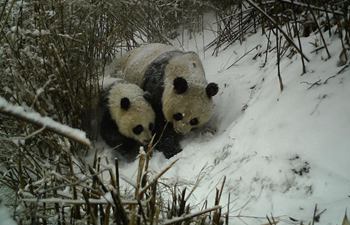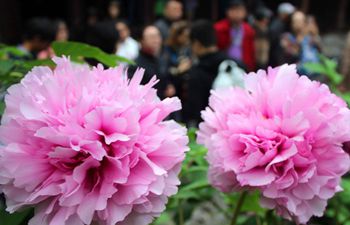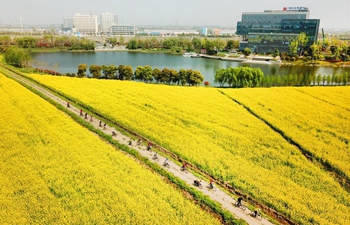YINCHUAN, April 6 (Xinhua) -- Goji berries are found all over China, from flasks of tea in offices through breakfast gruel to braised meat broths in Chinese kitchens.
Also known as the wolfberry, the goji berry and products are increasingly sought after overseas.
Northwest China's Ningxia Hui Autonomous Region grows vast quantities of goji berries, over 60,000 hectares of them. And annual production tops 180,000 tonnes.
Last year, exports reached 7,300 tonnes, according to the regional forestry administration.
"Exports of goji berries and products are growing by about 20 percent each year," said Chen Jianhua, deputy head of the administration.
Chinese people like to eat them raw, in tea or soups. Overseas fans make smoothies, salads and cakes. The berries can also be ingredients for facial masks, vitamin tablets and beer.
"A kilogram of goji berries sells for only 100 yuan (about 16 U.S. dollars). The berries themselves do not bring much profit, but downstream products can be very profitable," said Qiao Changsheng, executive chairman of Ningxia Qiyuantang goji industrial innovation institute.
China's goji berry history dates back thousands of years. In ancient herbal medicine, its functions included protecting the liver, improving eyesight and conserving strength.
China has 133,000 hectares of goji berries, mainly in the northwestern provinces. Ningxia has established standard farming techniques to control the use of pesticides, improve the qualities of the berries and develop new products, said Chen.
Goji products from Ningxia are exported to 30 countries and regions including United States, European Union, Japan and Australia.
The list of exporters is growing. Ningxia Wolfberry Goji Industry Co, Ltd is one of the big exporters. They export dried berries, juice, oil and freeze-dried powder to the United States.

















